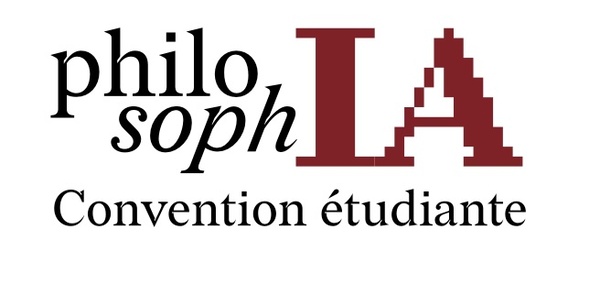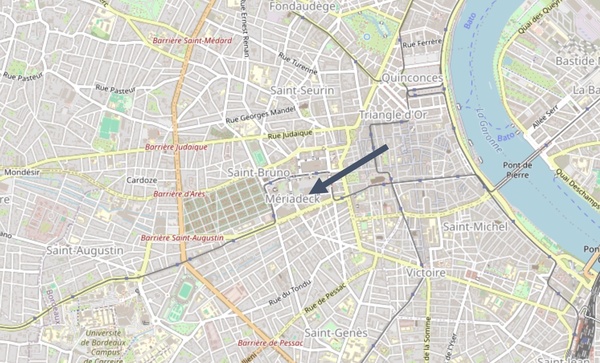
The explosion of generative artificial intelligence usage is radically transforming not only the way we must teach but also the content that needs to be taught. While it offers advantages such as learning autonomy, it also threatens critical and reflective capacities, as well as essential skills like writing and text comprehension. This societal transformation also impacts many professions, which will evolve, and for which we must already anticipate what skills will be essential.
What if, during this period of abrupt transition, we proposed that students become the actors of their own education?
The “Citizen Convention” tool is a fantastic way to allow students to take ownership of these crucial issues for their own future. Through expert hearings and debates, this convention aims to draft a series of recommendations for the transformation of teaching, educational methodologies, and targeted skills regarding the use of AI, while also educating students on the underlying democratic principles.
These recommendations will be officially presented, notably to Sciences Po Bordeaux and ENSEIRB-Matmeca (more to join us).
If you are a student and interested, send me an email!
Organizers
Sciences Po Bordeaux, université de Bordeaux, Bordeaux INP, Université Bordeaux Montaigne, Fondation Bordeaux Université, Bordeaux Métropole
The Philosophia Chair, which is being set up as part of the Philosophia Fund (contact: Mazarine Pingeot), is promoting an annual student citizens’ convention and has chosen AI as its first theme!
The Fondation Bordeaux Université has involved the IA Chair, Digne de confiance (contact: Laurent Simon), which is co-piloting this first edition, as well as the Sciences, Philosophy, Humanities laboratory (contact: Cédric Brun) and various training components from the different institutions on the Bordeaux campus (1st and 2nd cycles at Sciences Po Bordeaux, master’s degree in AI at the University of Bordeaux, DSPEG college at the University of Bordeaux, ENSEIRB-MATMECA computer science department (Bordeaux INP), doctoral schools, master’s degree in philosophical research at the University of Bordeaux Montaigne, etc.). ). Finally, Bordeaux Metropole is supporting and hosting the event
We expect more than a hundred motivated students for a weekend of debates and citizen recommendations!
Venue of the Convention

The convention will take place in the large amphitheater of Bordeaux Métropole (Esplanade Charles-de-Gaulle, Bordeaux) and in the reception halls around it.
Working Groups
The hundred students from different backgrounds will gather in working groups based on the issues:
- Quelles compétences et Métiers demain (avec l'IA partout avec nous)
- Comment utiliser l'IA pour apprendre mieux ? (Esprit critique)
- Risques de l'IA dans l'éducation (pertes de compétences fondamentales, dépendance, externalités négatives et notamment écologiques et sociales...)
- Faut-il former tout le monde (tous les étudiants, tous les enseignants) à l'IA ? A l'éthique ? Peut-on utiliser l'IA sans la comprendre ?
- Comment peut-on évaluer un élève sur des travaux personnels ? Comment mesurer des compétences quand on observe Eleve + IA ?
Provisional Schedule
| Heure | Session | Intervenant |
|---|---|---|
| 18:00 - 18:30 | Welcome and official opening | -- |
| 18:30 - 18:45 | General presentation of the Weekend | -- |
| 18:45 - 19:45 | Strength of a Citizens' Convention | Thierry Pech |
| 20:00 - 22:00 | Reception & Group Formation | Organizing team |
| Heure | Session | Intervenant |
|---|---|---|
| 08:45 - 9:00 | Welcome | -- |
| 09:00 - 10:00 | Conference: How the brain learns and memorizes | Pierre-Yves Oudeyer |
| 10:00 - 11:00 | Limits and promises of AI, ethics, regulatory framework | Raja Chatila |
| 11:00 - 11:15 | Coffee break | -- |
| 11:15 - 12:45 | Group ateliers | -- |
| 12:45 - 14:00 | Lunch | -- |
| 14:00 - 18:15 | Group ateliers | -- |
| 18:15 - 18:30 | Coffee break | -- |
| 18:30 | Sending pre-syntheses to groups | Teams |
| 18:30 - 19:30 | Conference: Impacts of AI in industry and society | Henri Verdier |
| 20:00 - 21:30 | Dinner | -- |
| Heure | Session | Intervenant |
|---|---|---|
| 08:45 - 9:00 | Welcome | -- |
| 09:00 - 10:00 | Group work: Debate and recommendations for amendments | |
| 10:00 - 10:15 | Coffee break | -- |
| 10:15 - 12:30 | Group work: Integration of amendments and debates | |
| 12:30 - 13:30 | Lunch | -- |
| 13:30 - 16:00 | Plenary: Presentation of recommendations & votes | Teams |
| 16:00 - 16:30 | Closing plenary | -- |
With Mazarine Pingeot, that was at the initiative of this event, we want to give special thanks to Cathel Bousquet (Bordeaux University Foundation), Cédric Brun, the students of Sciences Po Bordeaux, Arnaud Lévy, Samuel Attia.
You can find a list of references by following the current link

